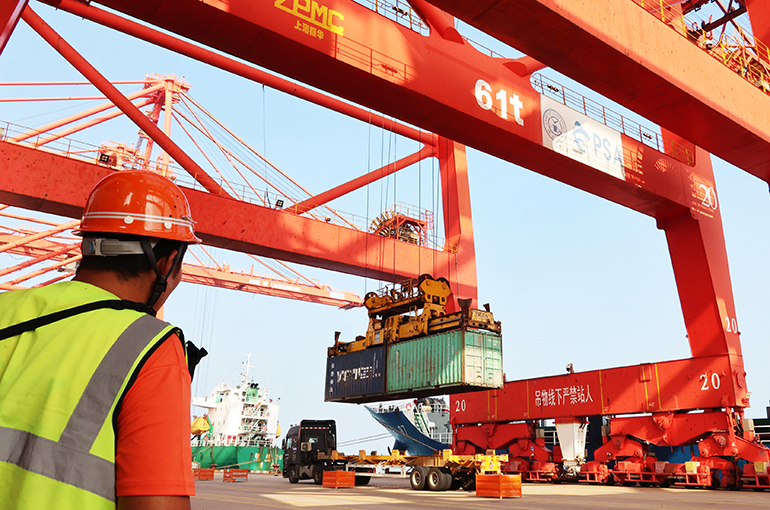 China’s Economy Can Grow 5 Percent This Year, Academic Says
China’s Economy Can Grow 5 Percent This Year, Academic Says(Yicai) March 8 -- The gross domestic product growth target of 5 percent recently set by the Chinese government for 2024 is fully achievable, despite the many challenges and uncertainties that the country’s economy faces, a macroeconomic and monetary policy researcher from the Chinese Academy of Social Sciences told Yicai in a recent interview.
“China can achieve a growth rate of 5 percent in 2024 if the government expands fiscal spending, issues more government bonds and supports infrastructure investment among other measures, while at the same time increasing residents’ income and propping up the value of real estate,” said Yu Yongding, who was a member of the Monetary Policy Committee of the People’s Bank of China from 2004 to 2006.
At present, China’s consumer inflation is close to zero, and the producer price index, a measure of factory profitability, has been negative for a long time, Yu said. This shows that there is still plenty of room for expansionary fiscal and monetary policies at the macro level.
Exports, investment and consumption are the three big drivers of the macroeconomy, Yu said. China’s exports are likely to deteriorate this year as international economic organizations are predicting that global economic growth in 2024 will be weaker than in 2023.
Consumer spending is also likely to slow down this year after the huge rebound in 2023, when, thanks to a big surge in demand after the pandemic and the low baseline in 2022, consumption contributed 82.5 percent to GDP, Yu said.
More Investment
This means that investment needs to expand faster this year to compensate for the slowing growth of exports and consumption, Yu said.
Of the three main types of fixed asset investment, namely, manufacturing, real estate and infrastructure, investment in manufacturing is likely to slump this year and that in real estate will continue to contract.
Therefore investment in infrastructure will become a key factor in determining the expansion of China’s investment in 2024 and the government should use infrastructure investment as a policy tool to make up for the lack of aggregate demand, he added.
Although the construction of high-speed railways and expressways may have become saturated, there is still considerable room for increasing investment in urban green energy projects, large aircraft, medical programs and pension schemes, he added.
China has raised its budgeted deficit for 2024 from last year, indicating that the government is stepping up fiscal spending, which is a very welcome move, Yu said. Whether the expansion will be enough remains to be seen.
This year’s deficit cap is likely to exceed the standard set by the EU’s Maastricht Treaty, which stipulates that the fiscal deficit ratio of eurozone member states should not exceed 3 percent and the national debt-to-GDP ratio should not exceed 60 percent, Yu said.
“These two criteria were put forward by eurozone members in northwestern Europe to limit overspending by members of the southern European region,” Yu said. “These two criteria therefore have no basis in economic theory and have been abandoned by Western countries.”
Editors: Tang Shihua, Kim Taylor